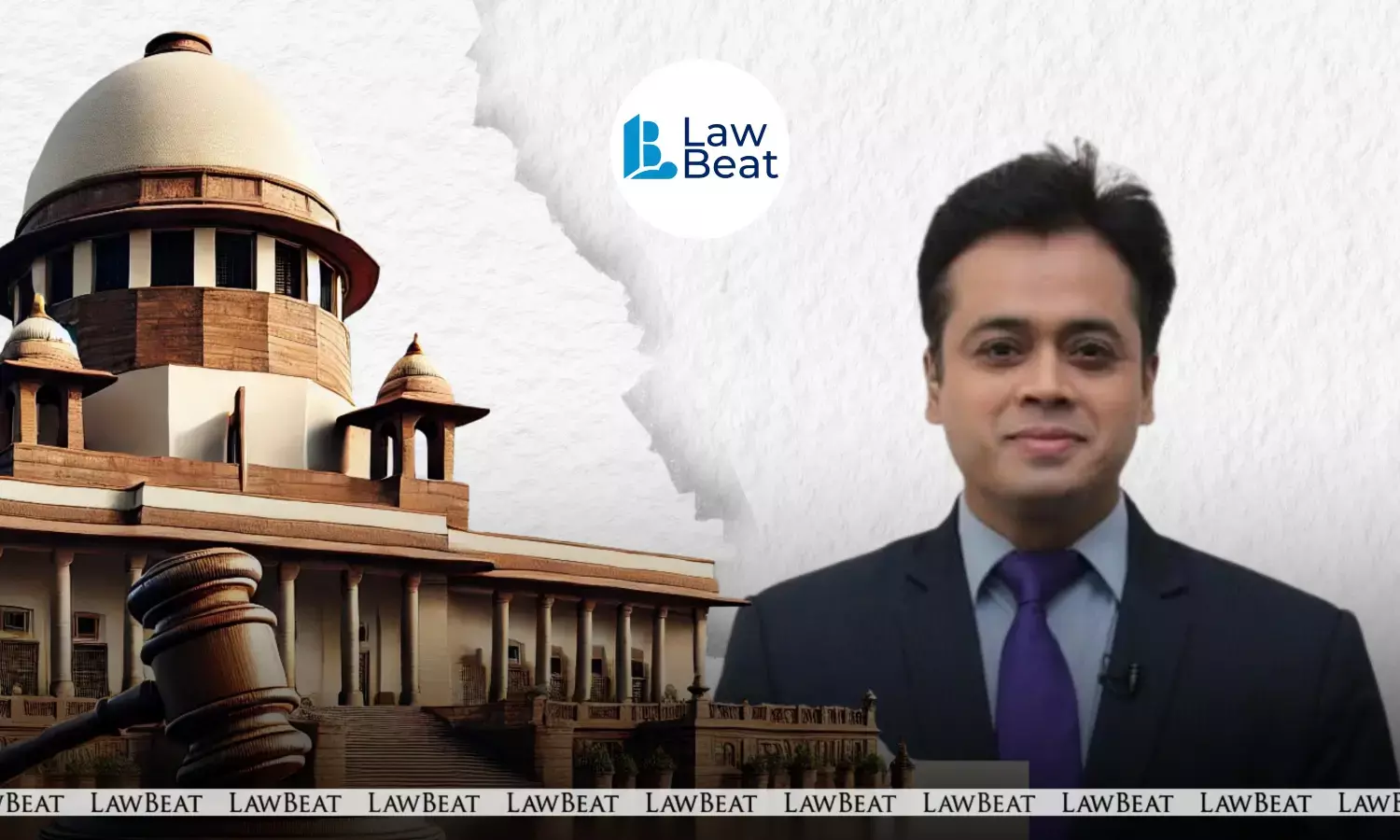Journalist Abhisar Sharma: SC Refuses to Quash FIR U/S. 152 BNS; Grants 4 Weeks to Move HC

The Supreme Court on Thursday issued notice on a plea by senior journalist Abhisar Sharma, who has challenged the constitutionality of Section 152 of the Bharatiya Nyaya Sanhita (BNS), 2023, widely described as the successor to the colonial-era sedition law under Section 124-A of the Indian Penal Code (IPC).
The Bench of Justice M.M. Sundresh and Justice N.K. Singh heard the petition moved under Article 32 of the Constitution, which arose out of an FIR lodged against Sharma in connection with a YouTube video questioning the allotment of 3,000 bighas of tribal land to a private entity. The video reportedly flagged concerns relating to tribal rights, environmental degradation, and democratic accountability, citing recent proceedings before the Guwahati High Court.
Senior Advocate Kapil Sibal, appearing for Sharma, submitted that Section 152 BNS was being misused indiscriminately. “This Section 152 BNS… it’s used against anybody,” he argued.
The Bench, however, initially appeared disinclined to entertain the plea, with Justice Sundresh observing: “Go to the High Court…”
Sibal pressed further, pointing out that the Supreme Court is already seized of multiple petitions challenging the constitutional validity of Section 152 BNS.
When Justice Sundresh asked if the matter involved the same FIR as the pending petitions, Sibal clarified: “No.”
Urging the Court not to shut its doors, Sibal said: “Please don’t do this. Society looks up to this court. Please don’t do this.”
After hearing the submissions, the Court passed a nuanced order:
1. Notice issued and petition tagged with existing matters only in respect of the challenge to the vires of Section 152 BNS.
2. The court made it clear that it was not inclined to interfere with the challenge to the FIR arising from Sharma’s YouTube report.
However, recognizing the need to safeguard the petitioner’s liberty, the Bench granted interim protection for four weeks, enabling Sharma to approach the High Court for appropriate relief.
The matter will now be tagged with the pending batch of petitions that question the constitutional validity of Section 152 BNS, which critics argue mirrors the sedition law struck down in spirit by earlier judicial pronouncements.
The FIR was registered following a complaint against a YouTube video in which the journalist questioned the allotment of 3,000 bighas of tribal land to a private entity. The video highlighted concerns over tribal rights, environmental impact, and democratic accountability, drawing upon recent proceedings before the Guwahati High Court.
The complaint accused him of ridiculing the government, mocking the political use of “Ram Rajya,” promoting enmity between groups, and making statements prejudicial to national integration.
The petition stresses that all statements made were fact-based, supported by original clips of speeches by the Chief Minister of Assam, and directed at government policies; not religion or national unity.
1. On the charge of denigrating the government, the petition argues: criticism of elected representatives is a constitutionally protected exercise of free expression and did not call for violence or disorder.
2. On the “Ram Rajya” remark, it clarifies that the reference was metaphorical and political, highlighting gaps between proclaimed ideals and governance realities.
3. On allegations of promoting enmity, the petition points out that the video actually condemned communal rhetoric, urging harmony rather than division.
4. On national integration, it stresses that criticism of state governance cannot be equated with anti-national activity.
The core of the writ petition challenges Section 152 BNS, calling it a “reincarnation of sedition,” suffering from the same constitutional vices of vagueness and overbreadth as Section 124-A IPC.
The journalist argues that the provision violates Articles 14, 19(1)(a), and 21 of the Constitution and directly conflicts with the Supreme Court’s 2022 interim order in WP (C) No. 682 of 2021, which had directed governments not to register or pursue cases under the sedition law until the matter was finally decided.
The petition filed through AoR Sumeer Sodhi underscores that the case is not an isolated instance, but part of a wider pattern of criminal laws being weaponized against journalists. Several reporters have been forced to approach courts against similar FIRs filed for their reportage or critical commentary on government policies.
He argued that the present FIR discloses no offence and is a clear misuse of criminal law to target journalistic expression, adding that invoking a law punishable with life imprisonment for a critical news video is a “gross constitutional affront.”
The petition is expected to be tagged with pending challenges to Section 124-A IPC, where the Court is already examining the future of sedition laws in India.
In a related news, the Apex Court had recently granted interim protection from coercive action to The Wire’s Founding Editor Siddharth Varadarajan, along with other members of the petitioner-Foundation, in connection with a fresh sedition FIR registered by the Assam Police under Section 152 of the Bharatiya Nyaya Sanhita (BNS). Notably, on August 12, the Court had granted interim protection from coercive action to The Wire’s founding Editor in connection with another FIR lodged by the Assam Police under Section 152 of the Bharatiya Nyaya Sanhita (BNS), a provision alleged to have effectively revived the repealed sedition law. The FIR against Varadarajan was registered after an article was published in 'The Wire' on Operation Sindoor, under which India targeted terror infrastructure in Pakistan and Pakistan-occupied Kashmir in May in retaliation for the April 22 Pahalgam attack.
Case Title: Abhisar Sharma v. Union of India & Ors.
Hearing Date: August 28, 2025
Bench: Justice MM Sundresh and Justice NK Singh
